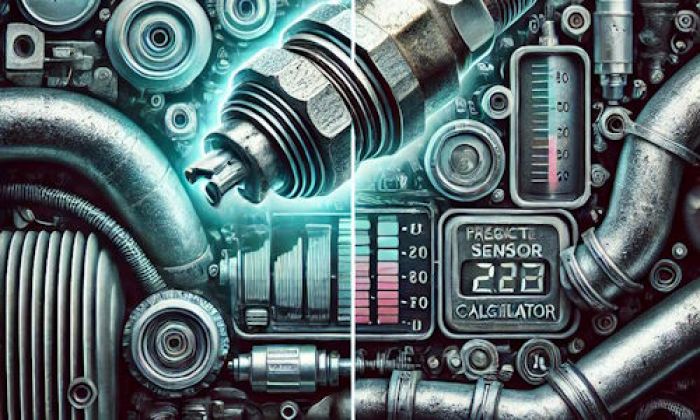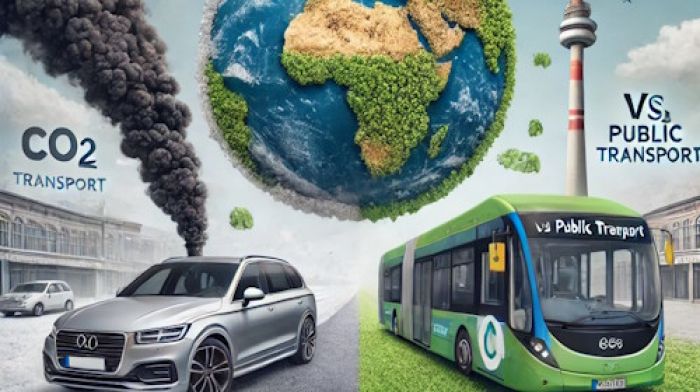The Toyota 4.7L V8 was first introduced back in 1998, and ever since then, it has been hailed for its robust performance, exceptional reliability, and great versatility. Toyota has made sure to continuously upgrade this engine to keep it in check with modern times but the engine has slowly been phased out in favor of smaller, hybridized powertrains.
Key features and my opinion about the engine
- Production years:1998-2012
- Average lifespan of 2UZ-FE:320,000-360,000 miles
- Fuel supply type:port injection
- Power range:230-232 hp
- Fuel efficiency:awful
- Engine block material:cast-iron
- Engine reliability score:high
- The most common problems:no lifters, timing belt and water pump are weak, complicated timing belt replacement procedure.
.jpg)
What Are the Best Mods for Toyota 4.7 V8 Engine?
1) Cold Air Intake
By swapping the stock air intake for a proper cold air intake, you are basically giving your engine denser and cooler air which helps with boosting the power up. Colder and denser air makes the combustion process more intense which in turn pushes the power up.
Even though these power gains aren't massive, a cold air intake is one of the most popular mods because it's relatively affordable to do and you can install it yourself. As a bonus, a cold air intake might also improve the sound of your engine by making the induction noise louder and more unique.
2) Exhaust System
When it comes to exhaust system upgrades, there are usually three different types of exhaust upgrades you can do. If you want to slightly make the sound louder without any noticeable power gains, an axle back exhaust upgrade is the way to go. It's the easiest and most affordable exhaust mod you can do as you are only replacing the tail end of the system.
On the other hand, a header-back exhaust system involves replacing the entire exhaust system from the exhaust headers to the tips. This will give you more power and sound, but it is more difficult to do and more expensive.
Lastly, you can also opt to do a full exhaust system upgrade which involves replacing everything from the manifold to the tips of the exhaust system. Even though this makes your engine the loudest and pushes the most power, it is by far the most expensive.
3) Engine ECU Tuning
The ECU controls some of the most important engine metrics such as air-to-fuel ratios, engine timing, throttle response, fueling, etc. By changing these metrics, you are essentially able to change how your engine operates which can allow you to do many cool things such as increase your power, make your throttle more responsive, make more torque, or even make your engine more efficient.
Granted, you ought to be careful when using an ECU tuner if you are not 100% aware of what you are doing. Moreover, it would also be a great idea to do a safety backup with all of your stock ECU metrics in order to always be able to return the system to stock if something goes wrong or you want to try something else or sell the car.
4) Throttle Body
Another great way of enhancing airflow that comes into the engine is a decent throttle body upgrade. If you opt for a larger throttle body, you can increase your power and torque throughout the engine rev range.
Even though these gains are not massive, they are a perfect complement to most other mods on this list. This modification is also widely documented online and it does not seem to be an overly difficult modification to install yourself.
5) Performance Camshaft
The last modification we are going to talk about today requires significant mechanical expertise and experience which means that this is not something unexperienced people should do. If you want to push a lot more power and torque, you will have to swap out your stock camshaft with a purpose-built dedicated performance Toyota 4.7 V8 camshaft.
What to Do When You Modify an Engine?
If you've decided that you want to modify your engine, there are a few things you definitely need to keep in mind. These are:
- Reliability - Pushing more power on a stock engine and transmission can cause additional strain which can lead to serious reliability issues. As such, those wanting to make extensive mods that are aimed at pushing the power up significantly should also consider strengthening the main components of their powertrain.
- Brakes - If you pushed the power of your Toyota 4.7 V8 up greatly, you should not forget about upgrading your brakes. Since this engine is used for Toyota SUVs and pickups, stronger brake performance is vital as the stock brakes might not be able to continuously stop your car, especially if it's pushing a lot more power.
- Additional Maintenance - After substantially upgrading your engine, you should forget about following a "normal" pre-scheduled maintenance plan as the more mods you do, the more frequent your maintenance ought to be in order to make sure everything works as intended.
- Cooling System - With more power coming out of the 4.7 V8, more heat is bound to follow. So, it would be highly recommended to upgrade your cooling system as well in order to be able to cope with all the increased strain created by higher temperatures.
- Transmission - Even though more power does not necessarily create issues for the transmission, more torque sure does. Therefore, it is greatly recommended to strengthen and maintain your transmission as much higher torque numbers are sure to cause serious transmission strain in most vehicles.
How Long Can the Toyota 4.7 V8 Engine Last?
It is rather impossible to say for certain how long any engine can last, but we can give a rough assessment simply by looking at how these engines perform today. The Toyota 4.7 V8 has widely been regarded as one of the most reliable engines Toyota has ever made which does get it off to a very good start.
As such, most people think that with proper maintenance, the Toyota 4.7 V8 can easily last more than 300,000 miles. Even so, there are many people only posting silly pictures of their Toyota 4.7 V8 vehicles accumulating 400k or 500k miles without needing any major overhauls or rebuilds.
So, if you take proper care of your 4.7 and you don't treat it badly, you should be able to enjoy it for decades to come. Toyota is a brand known for reliability, especially with its larger vehicles such as the Land Cruiser or the Toyota Tundra.
Should I Buy a Toyota 4.7 V8?
If you are after an engine that can withstand all of the abuse of daily driving while also giving you decent hauling and towing numbers, the 4.7 V8 is the one for you. On the other hand, the 4.7 pushes fairly laughable numbers considering its displacement and cylinder count.
The 4.7 V8 typically offers between 235 and 275hp from the factory which is nowhere near what some V8s can do. As a spot of context, Maserati also offered a 4.7L V8, but Maserati managed to extract 600hp from it while Aston Martin managed to extract close to 500hp from a 4.7L V8.
However, we do need to say that Toyota probably didn't even bother with making the engine more powerful as the main goal was likely to create a high-ceiling engine for future tuning and to keep the engine as reliable as it can be.
Therefore, we can easily say that the 4.7 V8 is one of the best Toyota engines out there, so, yes, if you can, you should buy a Toyota 4.7 V8 engine as engines like these are a dying breed these days, and they ought to be cherished while still here.
Conclusion
The best Toyota 4.7 V8 engine mods to do are a cold air intake, an exhaust system upgrade, throttle body upgrades, an ECU engine tuning, and a performance camshaft swap. It's worth mentioning that these aren't the only worthwhile engine mods a 4.7L V8 can get, but they are the most popular and the most researched.
This means that people are widely aware of what they need to do to make these modifications work without causing too much strain on a stock engine block and causing reliability problems down the line.
About the authors
The CarAraC research team is composed of seasoned auto mechanics and automotive industry professionals, including individuals with advanced degrees and certifications in their field. Our team members boast prestigious credentials, reflecting their extensive knowledge and skills. These qualifications include: IMI: Institute of the Motor Industry, ASE-Certified Master Automobile Technicians; Coventry University, Graduate of MA in Automotive Journalism; Politecnico di Torino, Italy, MS Automotive Engineering; Ss. Cyril and Methodius University in Skopje, Mechanical University in Skopje; TOC Automotive College; DHA Suffa University, Department of Mechanical Engineering






Add comment